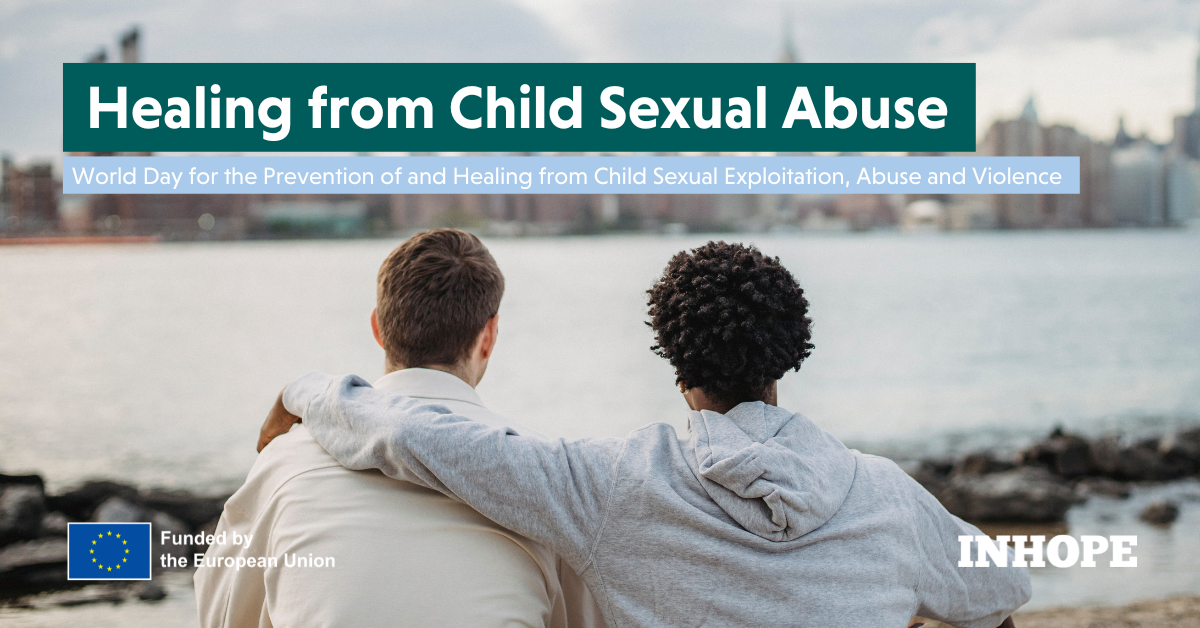Article
Educational Articles
Supporting Victims and Survivors in their Recovery Journey
November 18 is the global day dedicated to the prevention of, and healing from child sexual exploitation, abuse and violence. Child sexual abuse (CSA) is devastating and can cause profound long-term consequences for the survivors, but recovery is possible. Chosen by the UN, this day serves as a reminder of the potential for healing.
After CSA has occurred, whether it happens in person or online, multiple factors influence the recovery journey. It's a challenging path that's difficult to navigate alone. Having a support network is pivotal in helping survivors find their way toward healing and recovery. This article aims to be a valuable resource for CSA survivors, as well as their friends and family, offering guidance on how to support their loved ones throughout this journey.
Immediate Support After Abuse
If you know someone who confides in you about experiencing abuse, there are many things you can do to support them appropriately in that moment.
- Believe Them: It takes immense courage to speak up about abuse. When survivors are met with doubt and disbelief it can discourage them and prevent them from speaking about it further.
- Offer Support and Safety: Assure them of your commitment to their safety and emotional well-being. If CSAM was created during the abuse, encourage them to seek support to get the material removed to avoid revictimisation.
- Respect Their Decisions: Reporting abuse is emotionally complex. Not all survivors may be ready to report their abuser. Respect their pace and decisions, while gently guiding them as needed.
Please note: In cases where other people might be in danger, law enforcement must be contacted immediately.
Support throughout recovery
The end of abuse doesn't signify an immediate return to normalcy for survivors. Lingering consequences can disrupt daily life. Different therapies, such as cognitive-behavioural and trauma therapy, can aid in working through the experience. However, this process is non-linear and can be lengthy. So, how can you support your friend or family member during their recovery?
- Patience: Recovery is often non-linear. Be patient and respect their individual journey, which may look different for everyone.
- Empathy: Mental health challenges may lead to behaviour that's hard to understand for outsiders. Be empathetic and avoid alienating them, even if you can't fully comprehend their fear, anxiety, or depression.
- Normalcy: Survivors often long to return to a sense of normalcy. While support is crucial, treating them like a patient can be counterproductive. Recognise that the person who survived abuse is still your friend or family member, and treat them as such to reduce feelings of isolation.
The role of stakeholders
While a supportive network of friends and family can ease the pain for survivors, many must navigate their healing journey alone. This is why it is critical to establish supportive systems in society that prioritise an easier process for victims and survivors when it comes to seeking help, reporting abuse, investigating perpetrators and getting harmful material of the abuse removed from the internet.
- Critical Resources: Hotlines and helplines are crucial resources for victims and survivors. INHOPE works to create a global network of member hotlines to ensure the swift removal of CSAM from the internet.
- Online Platform Responsibility: Online platforms must take reports seriously and remove harmful content immediately. Cooperating with child protection organisations like INHOPE as well as other stakeholders in this field can help ensure that your platform adheres to the highest child protection standards. Read more about the responsibilities of online platforms here.
- Cooperation and Streamlining: Investigating and prosecuting cases of CSA and CSAM is often challenging and time-consuming. Local government and law enforcement agencies are advised to establish partnerships with global networks like INHOPE. This can help to alleviate the workload and streamline victim identification and safeguarding.
- Legislative Guidelines: Harmonised legislative guidelines are necessary to expedite removal and prosecution processes and prevent re-victimization.
If you or a loved one has experienced abuse, know that resources and help are available. If you're uncertain about what steps to take after abuse has occurred, consider reaching out to your local helplines for guidance and support.

If you're uncertain about what steps to take after abuse has occurred, consider reaching out to your local helplines for guidance and support.
'